In pictures: Toronto Film Festival at 40 - history and highlights
- Published
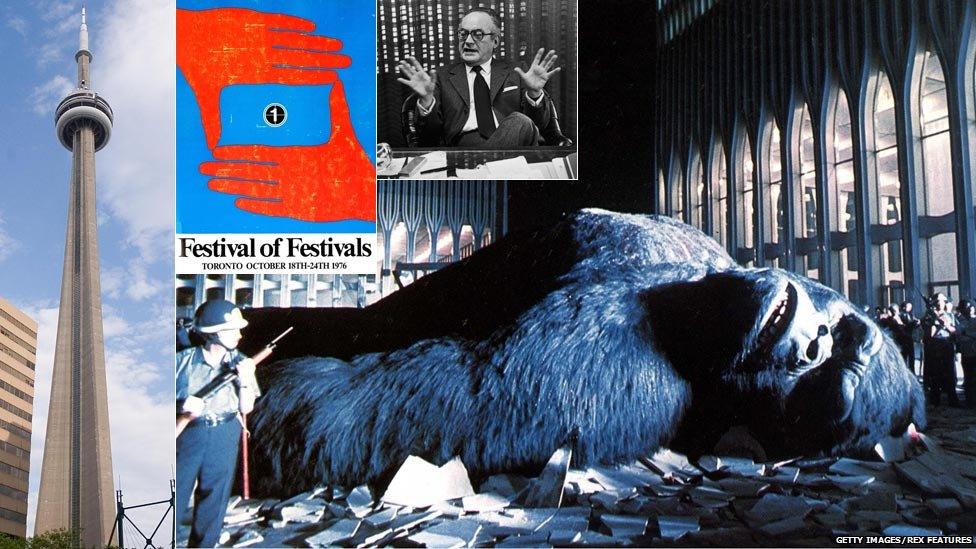
The inaugural Toronto Film Festival was held in 1976, the same year the city's CN Tower (left) opened. Held in the city's Yorkville district, it presented 127 films from 30 countries and was attended by 35,000 people. Most of those films had already screened elsewhere; indeed, the event's original title was the "Festival of Festivals". Its programme had an arthouse feel, not entirely by choice as its founders found it difficult to persuade Hollywood to let its product screen at an untested enterprise. One of the few to buck the trend was producer Dino De Laurentiis (inset), who came bearing 90 seconds from his upcoming remake of King Kong.
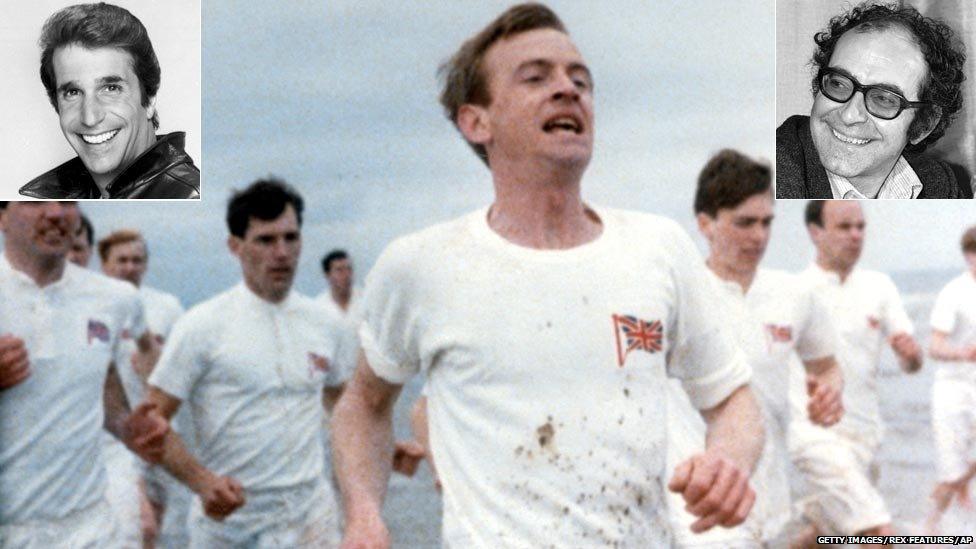
Despite an appearance from Happy Days star Henry Winkler (left) in 1977, it took time for the event to establish itself. Just 85 films were screened the following year, the lowest number to date. In 1980, however, Toronto achieved a significant coup by persuading French film-maker Jean-Luc Godard (right) to attend a retrospective in his honour. The following year, festival-goers voted to give the People's Choice award to Britain's Chariots of Fire. The acclaimed period drama about British athletes competing in the 1924 Olympics went on to win four Oscars, including the best picture prize.
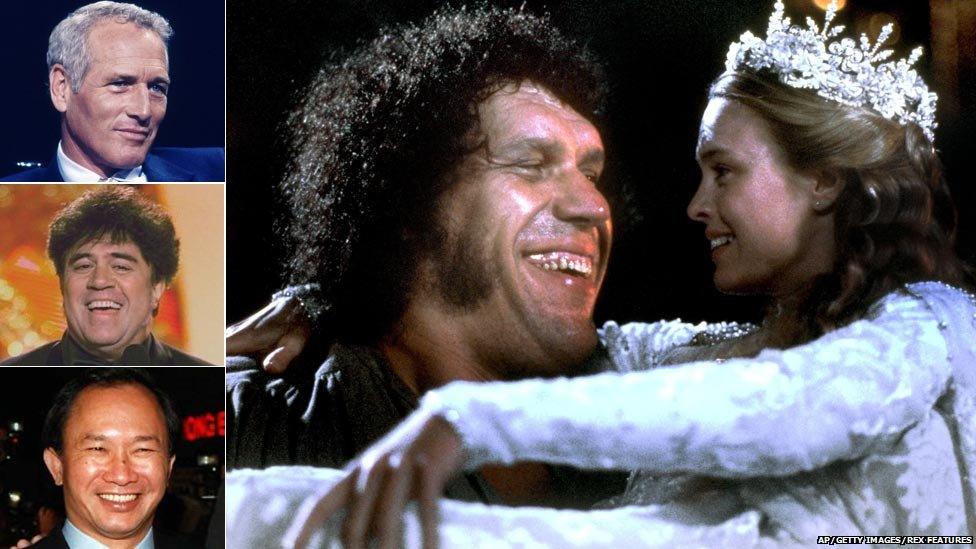
The growth of Toronto in just 10 years was illustrated in 1987 by a star-studded guest list that included Paul Newman (top left). Yet the event also proved itself to be a valuable platform for emerging talent by introducing North American audiences to Spain’s Pedro Almodovar (centre left) and the action cinema of Hong Kong’s John Woo (bottom left). Winning that year's People's Choice award gave a boost to Rob Reiner's The Princess Bride, which went on to make friends around the globe. A special chair had to be built for one of its stars, wrestler turned actor Andre the Giant (pictured with co-star Robin Wright).
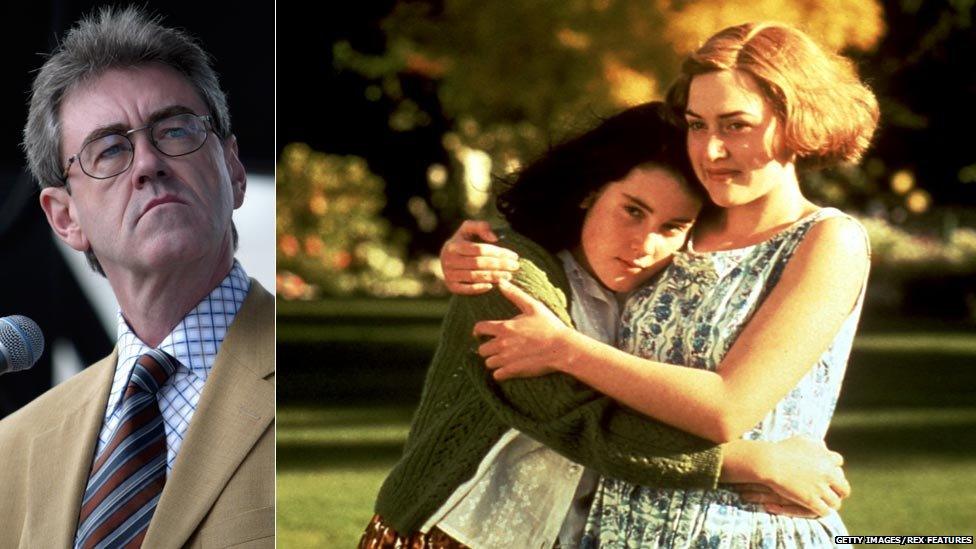
By 1994 Toronto's status as both a launch-pad for movies with hopes of enjoying Oscar glory and a shop window for titles seeking North American distribution was confirmed. So the decision was made to rechristen the event the Toronto International Film Festival - TIFF for short. "It's time we started... giving the festival a name that properly reflects who we are," said outgoing executive director Helga Stephenson. Her shoes were filled by her deputy Piers Handling (pictured left in 2005), whose first year in charge saw a young Kate Winslet (pictured right) make an eye-catching debut in Peter Jackson's Heavenly Creatures.
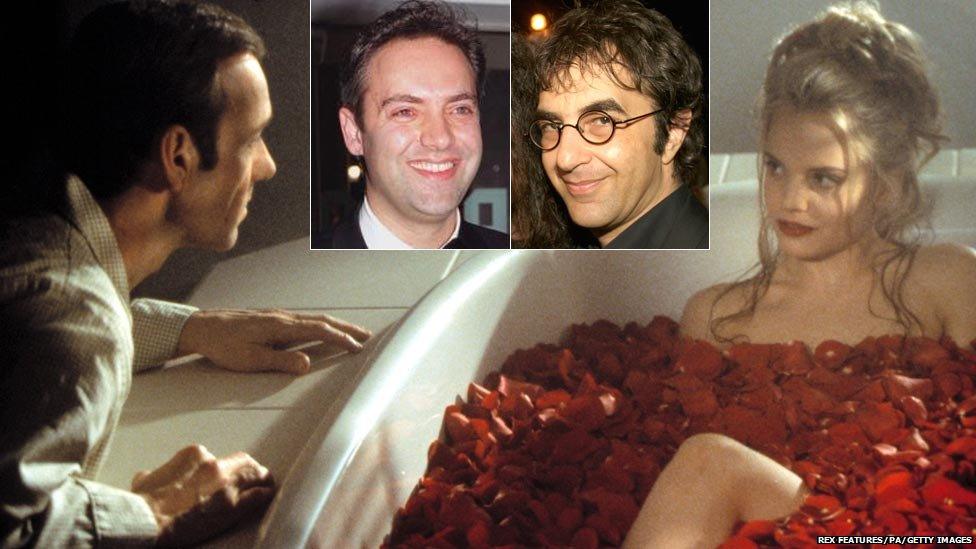
Toronto's proximity to the Venice Film Festival means they often share potential awards candidates, as was shown in 1999 when Boys Don't Cry, The Cider House Rules and Sweet and Lowdown were shown at both events. Toronto, however, had sole claim to American Beauty (main picture), another recipient of the People's Choice to go on and claim the Academy’s best picture prize, as well as another for its director Sam Mendes (inset left). According to the Canadian director Atom Egoyan (inset right), Toronto now had "glamour, art [and] industry - all the things you'd expect from many different types of festivals, all combined into one."
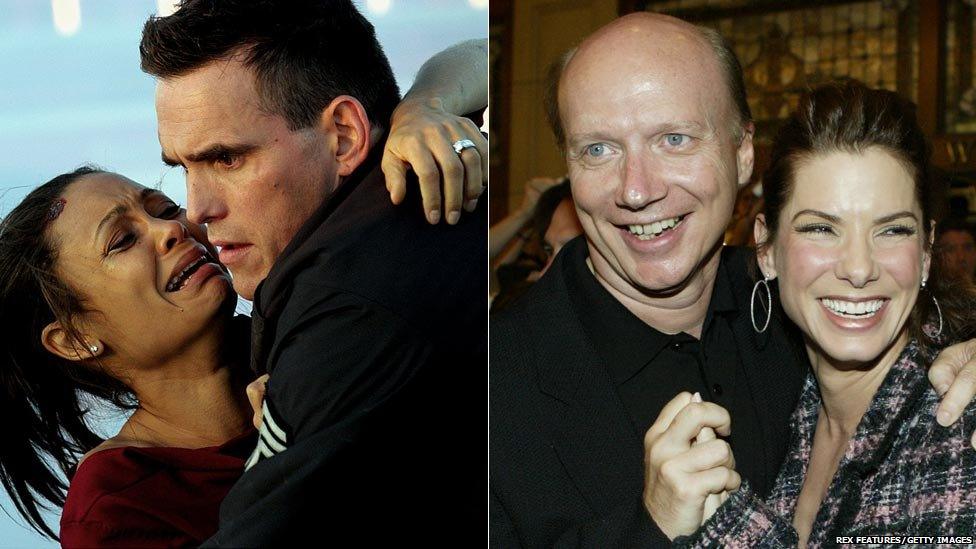
Toronto has not been free of controversy, as shown in 2004 when a documentary about three students who filmed themselves killing a cat was shown at the event. Animal rights activists protested against its inclusion, while one of the festival's programmers received a death threat from an anonymous caller. The same year saw the world premiere of Paul Haggis's ensemble drama Crash (left), the winner of the best picture Oscar 18 months later. The Canadian director (pictured right with Sandra Bullock) described the sold-out, standing room only screening as "a homecoming".
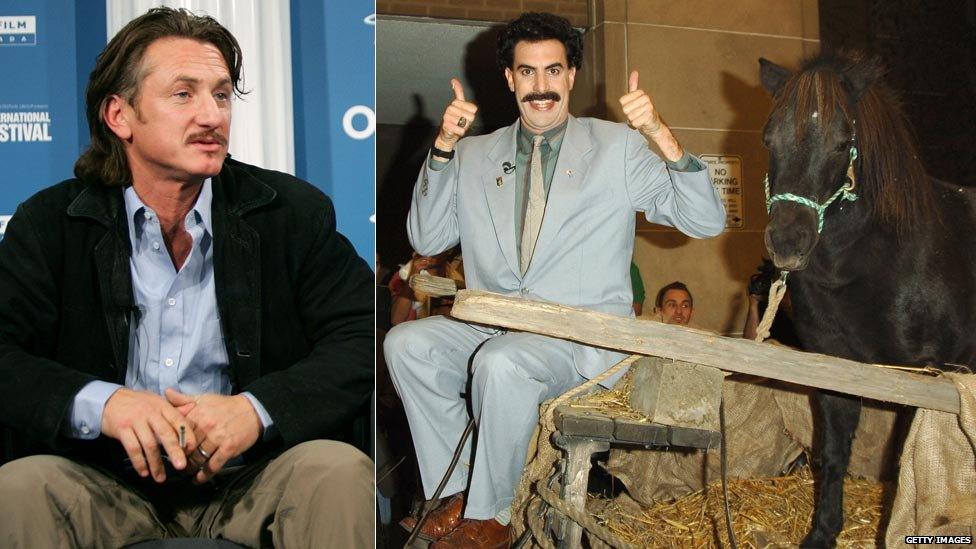
A year on from its 30th anniversary, Toronto made headlines again in 2006 after actor Sean Penn (left) lit up during a press conference for his film All The King's Men. His actions were in breach of Ontario's anti-smoking legislation and led to the hotel that hosted the event being fined 600 Canadian dollars (£370). On a lighter note, that year's festival saw British comic Sacha Baron Cohen (right) arrive at the premiere of Borat: Cultural Learnings Of America For Make Benefit Glorious Nation Of Kazakhstan on a cart pulled by six women in a harness. The midnight screening had to be abandoned later after the projector broke down.
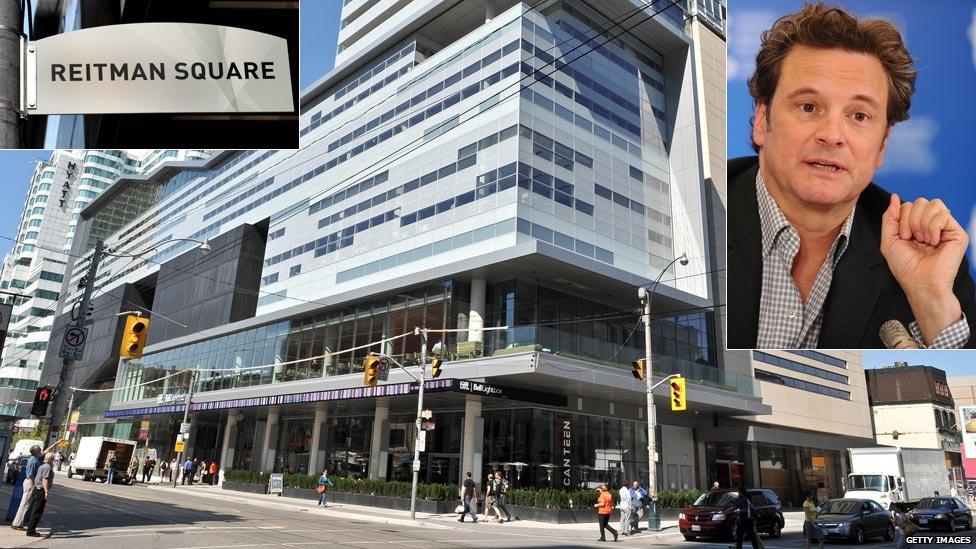
Starting with No Country For Old Men, Toronto has shown every winner of the best picture Oscar since 2007 apart from last year's Birdman - which screened at the rival Venice and New York film festivals. The signs were good for The King’s Speech, then, when Toronto screened it in 2010 on what happened to be the 50th birthday of its leading man Colin Firth (inset right). Sure enough, it went on to win the Academy’s top honour six months later. The same year saw the TIFF Bell Lightbox (main picture), a new complex containing five cinemas, become the festival's official home in downtown Toronto on a square named in honour of Ghostbusters director Ivan Reitman and his family.
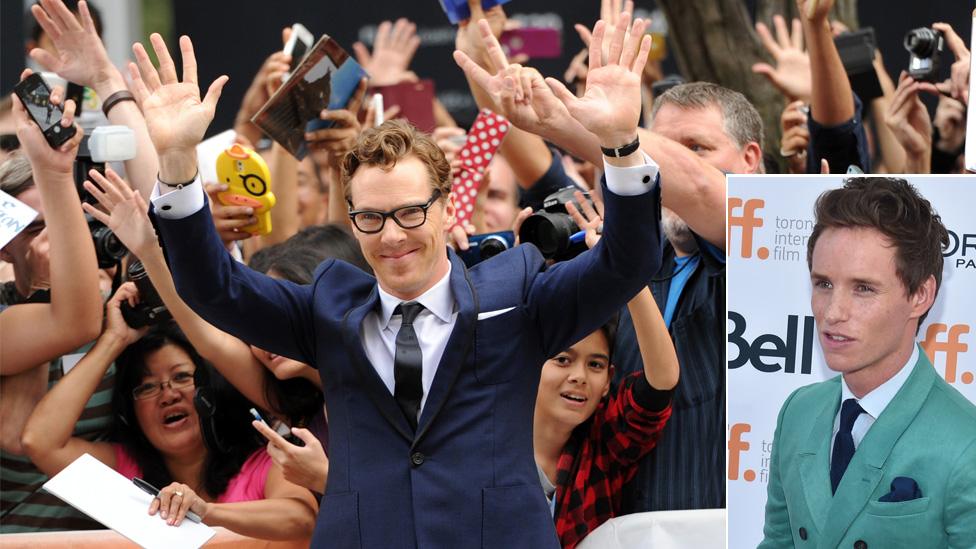
Benedict Cumberbatch film The Imitation Game won 2014's People's Choice award. The star was Oscar nominated for his role as Alan Turing, but he lost out to Eddie Redmayne for his performance as Stephen Hawking in The Theory of Everything - which also premiered at TIFF last year. The 2015 Toronto Film Festival begins on Thursday.